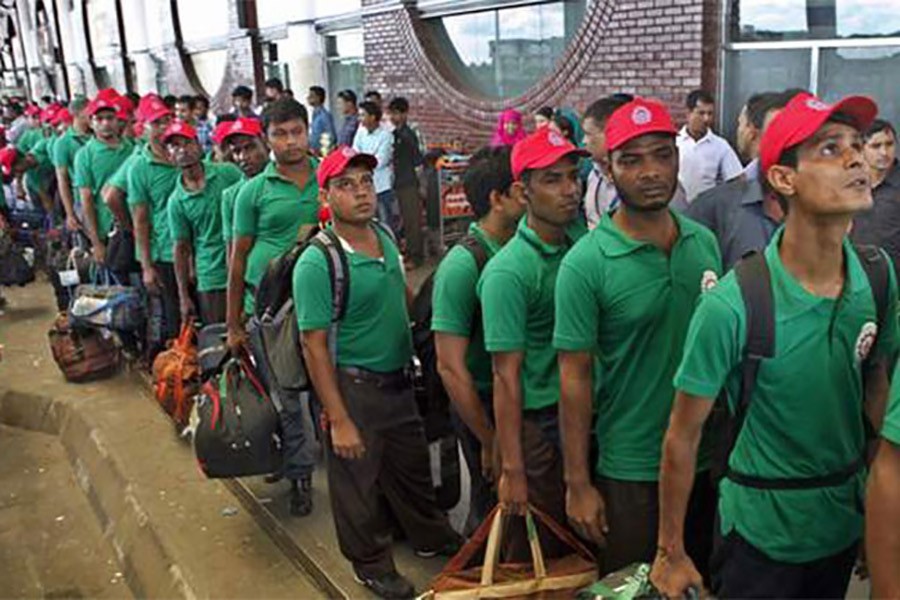The country's overseas employment declined by about 26 per cent during the last four months of the year as hiring by Saudi Arabia more than halved, the government said.
During the January-April period of 2018, some 273,304 Bangladeshi workers went abroad with jobs.
This compares with 368,458 during the same period of 2017, according to figures available with the state-run Bureau of Manpower, Employment and Training (BMET).
The demand for foreign workers decreased significantly in Saudi Arabia, the largest job market for Bangladeshi workers.
Manpower recruiters said, Saudi employers are not willing to recruit Bangladeshi workers except women at this moment.
But the hiring of women workers is usually low from the country, they added.
The overall outbound jobs have fallen significantly for this reason, said Benjir Ahmed, president of the Bangladesh Association of International Recruiting Agencies (BAIRA).
He said Saudi authorities had banned 12 categories of jobs for foreign workers.
This has had a negative impact on Bangladesh's overseas employment sector in recent months, he added.
"Bangladeshi workers holding individual visas are mostly engaged in 12 categories of jobs," said the BAIRA chief.
The number of Bangladeshi workers going to Saudi Arabia dropped by more than 50 per cent in the last four months, according to the BMET data.
During the January-April period of 2018, a total of 107,935 workers went to the Kingdom.
In contrast, the number of outflow was 216,101 in the oil-rich Arab country in the same period of 2017, the data showed.
In the last two years, Saudi Arabia recruited the highest number of workers from Bangladesh.
Among 1.0 million workers, some 551,308 went to the Arab country in 2017.
The outflow of Bangladeshi workers also declined in Oman, Qatar, Kuwait and Singapore.
The BMET figure shows that these countries recruited 26,448, 28,944, 15,456 and 12,481 workers respectively in the January- April period in 2018.
But the number of recruitment was 37,403, 36,661, 16,881 and 13,262 in the same period of 2017.
The jobs have dried up in Qatar too, mainly due to the impact of the sanctions imposed against Qatar by the Gulf states.
Many Bangladeshis returned home jobless recently while many others were waiting to come back home, according to sector people. The recent development in Qatar, the insiders said, weighed on the overall job figures.
Despite the Gulf gloom, workers' recruitment has increased in Malaysia.
Some 56,739 Bangladeshis found jobs in the Southeast Asian country during the last four months.
This country recruited only 6,497 workers from Bangladesh in the January-April period in 2017, the BMET statistics showed.
Mr Ahmed said Bangladesh should utilise the potential of the Malaysian market properly to close the gap.
If the authorities can send workers to Malaysia in the right way and explore new opportunities in traditional and new markets, it is possible to achieve the government's goal of deploying1.2 million workers this year, he added.


